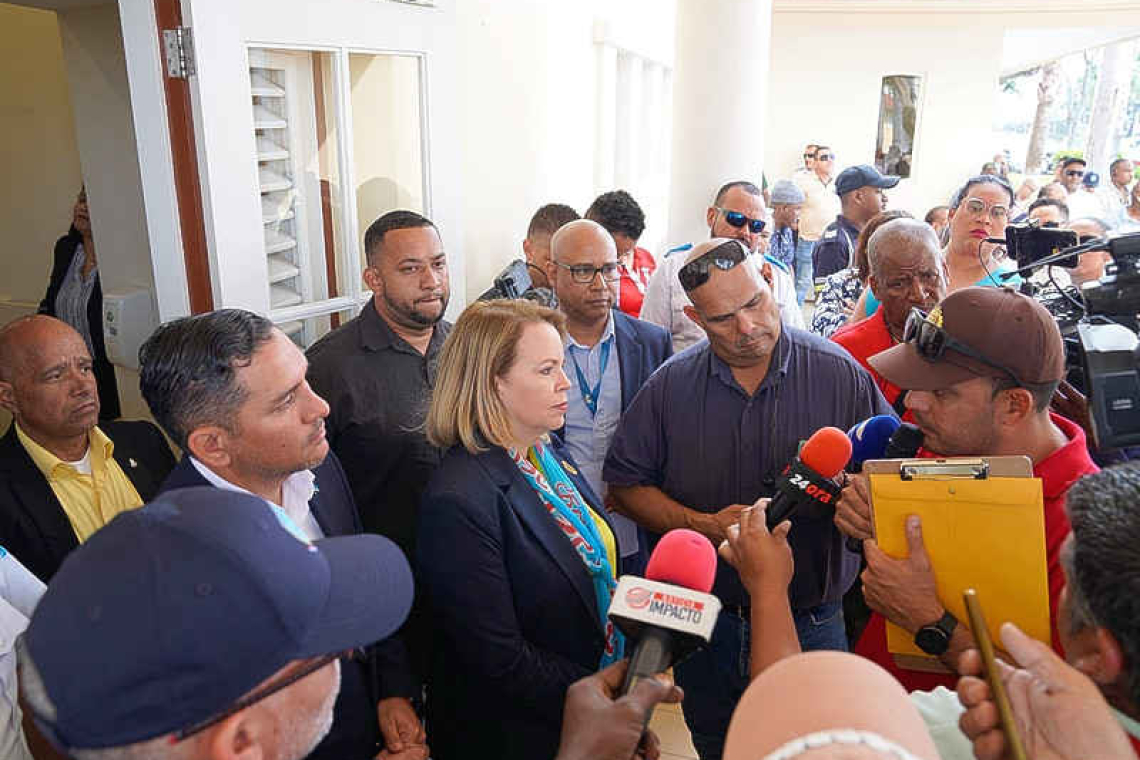Prime Minister Evelyn Wever-Croes and Minister Ursell Arends (second from left) received the manifest of the public sector employees and their labour unions on Wednesday morning. (Aruba government photo)
ORANJESTAD--Public sector employees and the labour unions in Aruba held a walk-out on Wednesday to protest against the way in which the local government wants to introduce the performance management system for civil servants.
“Your bread is in danger,” the six involved labour unions, TOPA, SPA, SEPPA, SADA, FTA and SIMAR, told their members who were called upon to protest against the government plans with a walk-out. The group presented a manifesto of the labour unions to Prime Minister Evelyn Wever-Croes in front of the government building on Wednesday morning.
The protesters don’t agree with the introduction of the performance management system, which entails an evaluation system for public sector employees. The Aruba government announced the new system at the end of last year and per January 1, 2023, it went into effect. With its introduction, there is now a uniform system to evaluate all public sector workers.
Wever-Croes explained that there were several reasons why this evaluation system was introduced. Having a uniform performance management system to evaluate personnel is common practice in the private sector.
The prime minister noted that with this system, public sector employees know up front how they will be evaluated, while the evaluation itself may help employees to get a promotion. Several government workers have indicated that they find it unjust that they are not getting a promotion because their boss didn’t evaluate them, or that some departments have an evaluation system and others not.
The dialogue with the labour unions about the introduction of the performance management system started last year. In December, the labour unions sent a letter to the prime minister with their grievances and asked government to stop the process. The labour unions were invited to a meeting late December, but according to Wever-Croes, they did not respond.
After the new system went into effect on January 1, the labour unions responded late January, and asked government for a meeting, a request that was honoured. However, during the meeting, four labour unions left under protest, demanding that government pull back the law, which only left TOPA at the table.
According to Wever-Croes, TOPA presented its concerns during a well-documented presentation. Based on these points, it was decided to form a technical committee in which the government and labour unions would try to find a solution.
During the manifestation at the government building, the prime minister extended an invitation to the labour unions to take part in the technical committee. She expressed the wish that the committee would be able to solve the points of concern in four to five weeks and arrive at a good evaluation system for the public sector employees.







